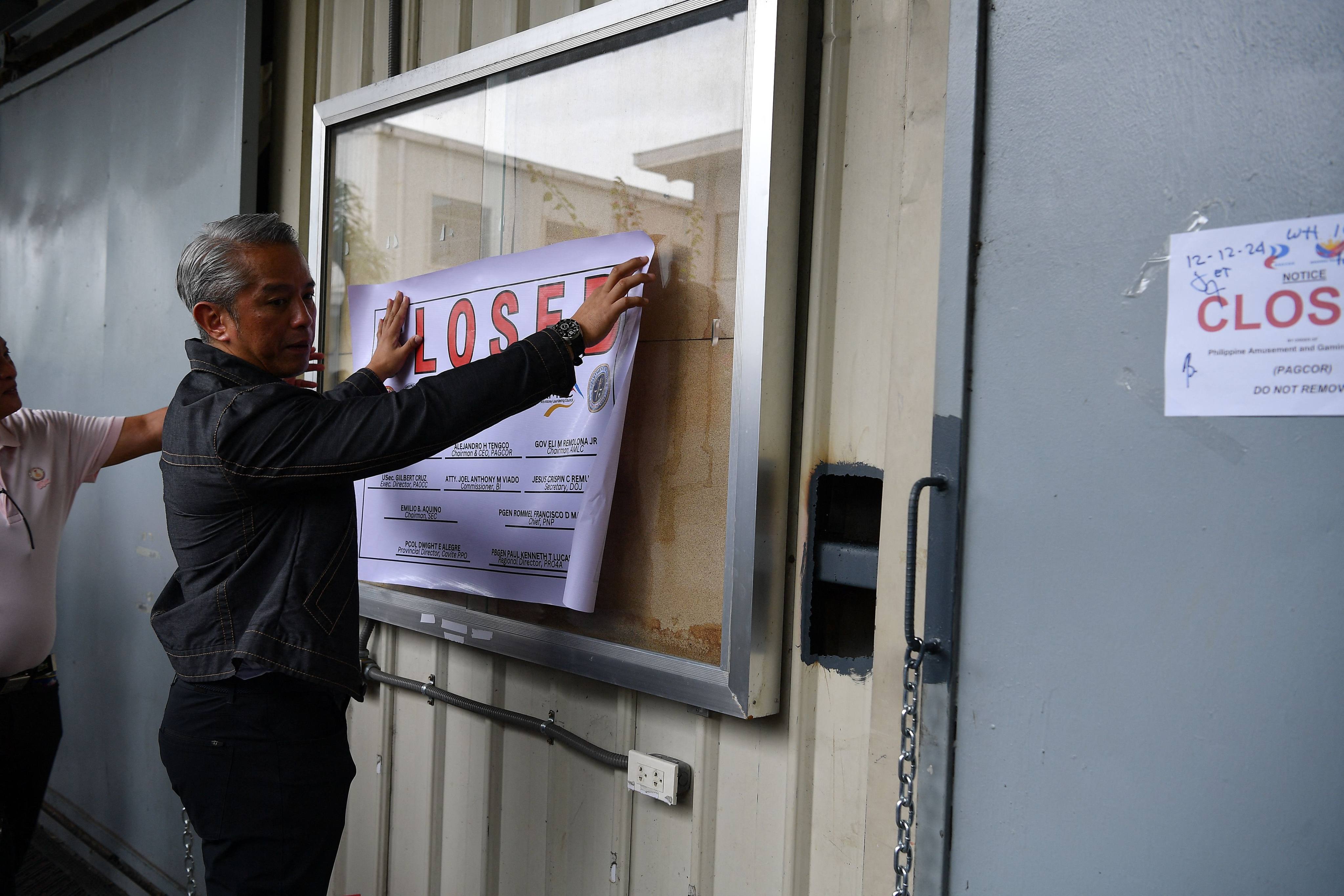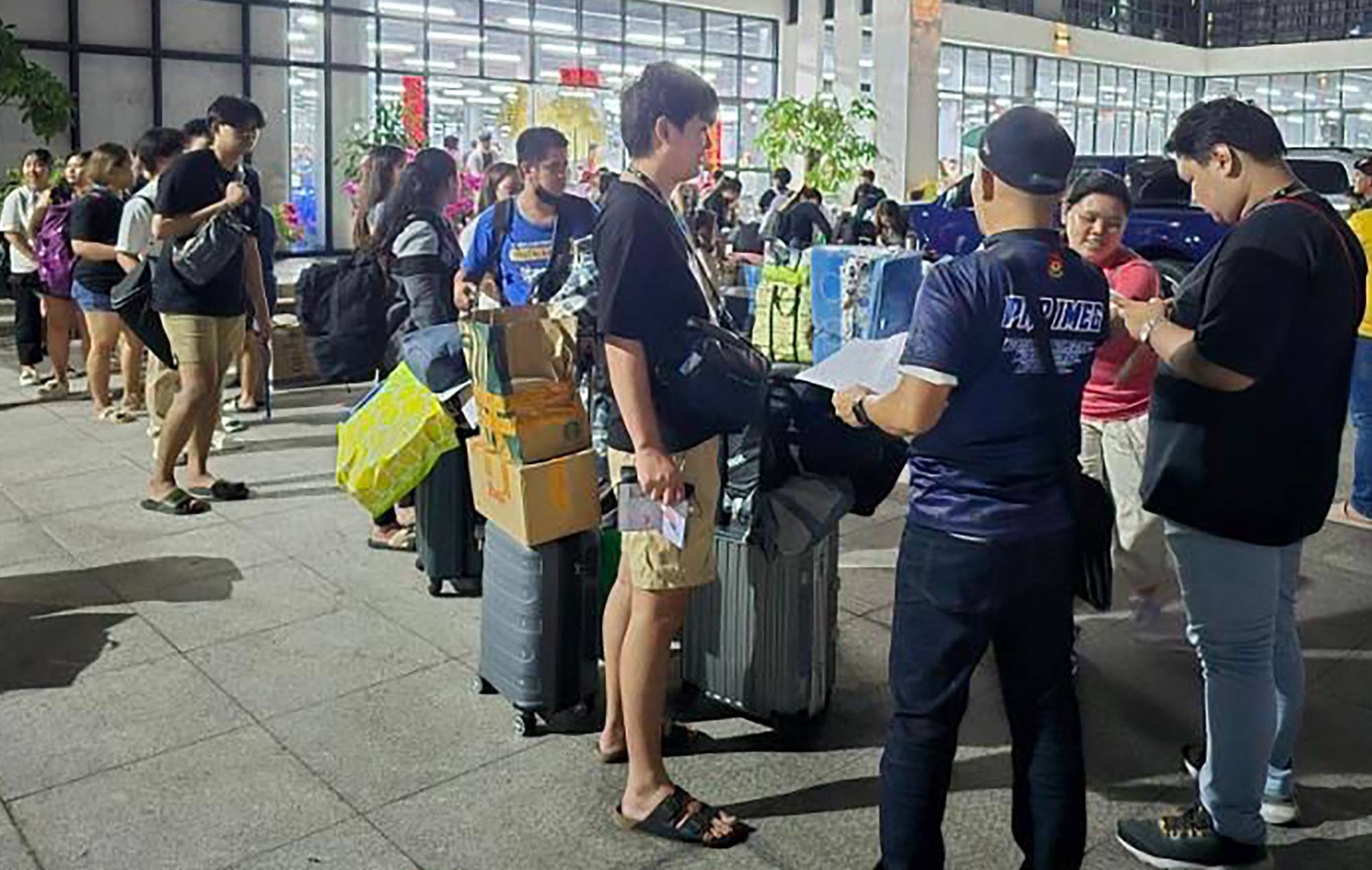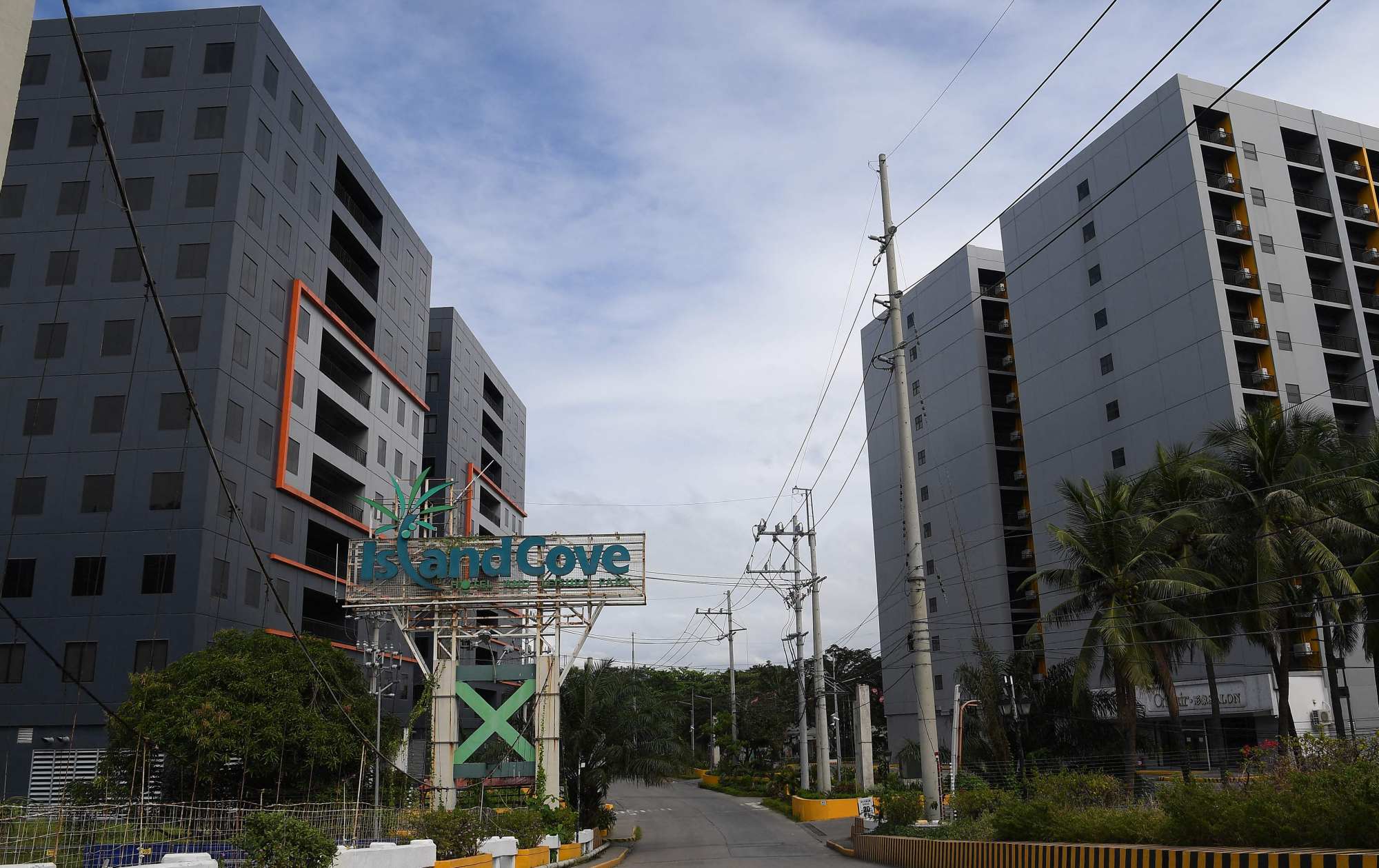Filipinos turn to online scams after losing jobs in Pogo crackdown
Many of those recently arrested for online scams were former Pogo workers who ‘branched out on their own’, cybercrime chief says

Filipinos who once worked for offshore gaming operators are turning to online scams, law enforcement officials have warned, amid signs that the industry’s shutdown has given way to a more fragmented and harder-to-police criminal landscape.
Many of those recently arrested for cybercrime offences had “branched out on their own”, using skills they had gained while working at Philippine offshore gaming operators (Pogos), according to Brigadier General Bernard Yang, head of the Philippine National Police Anti-Cybercrime Group.
“At this point, we cannot really say that these scam activities are still linked to Pogos,” Yang told a media forum on Wednesday. “Based on our statistics, they probably worked [for them] before, but after Pogos shut down, they picked it up and are now doing it independently.”
The former Pogo workers were likely using devices they had retrieved from the scam hubs in their operations, he added.
Pogos are gaming firms that cater mainly to overseas Chinese clientele. Raids by local authorities have uncovered their links to alleged crimes such as human trafficking and scams.

Yang added that based on their recent arrests this year, most of them were Filipinos. A total of 5,099 people were arrested for cybercrimes from January to mid-June. Police said 608 were arrested in entrapment operations, with seven being foreign nationals. The cybercrime chief did not provide a breakdown of arrests made specifically for online scams.
Yang’s statements come as Philippine officials continue tying up loose ends, following the lapse of President Ferdinand Marcos Jnr’s deadline for shutting down all Pogo operations by the end of 2024.
Marcos said during his third State of the Nation Address in July last year that he was ordering the ban of Pogos in the country and directed the Philippine Amusement and Gaming Corporation to cease all such operations by the end of the year.
Yet, authorities are struggling to curb all Pogo-related operations, especially since operators have moved from office buildings in large cities into less visible structures in provinces.
In February, Gilbert Cruz, chief of the Presidential Anti-Organised Crime Commission (PAOCC), said the government could get rid of all illegal Pogo activities within the year.
However, in June, Cruz admitted that the PAOCC had temporarily suspended enforcement actions against an estimated 9,000 workers who remained in the Philippines illegally. This was due to congestion in its detention facility in Pasay, a seized Pogo hub that had been converted into a PAOCC satellite office.
‘Inevitable and expected’
The arrests are in line with what analysts had previously predicted – that criminal activities linked to smaller-scale offshore gaming operators might evolve into a “cottage industry”.
“This is the consequence when operatives and law enforcers eradicate the surface of a bigger iceberg,” Chester Cabalza, founder and president of the think tank International Development and Security Cooperation, told This Week in Asia.
Jan Chavez-Arceo, a national security fellow of the Philippine Council for Foreign Relations, called it an “inevitable and expected result of the clampdown on Pogos”.
“The displacement is massive, and these illegal elements went scrambling like dispersed rats. Although there was indeed an urgency to stop the illegal and inhumane activities of these gambling complexes, there could have been a more organised phasing out,” she said.
Angel Redoble, chairman of the Philippine Institute of Cyber Security Professionals, said authorities planning for the Pogo ban should have anticipated that a segment of the population would lose their jobs.
“They need to find something to earn money from. Being exposed to how Pogos were operated by their bosses, these Filipinos found a way to earn money, but this time on their own,” he said.

Redoble said the Philippines faced hurdles in apprehending these operations due to technological gaps in surveillance.
“Do we have the technology … to do surveillance and identify these sources of scam and online fraud activities? You need cyber intelligence, data analytics to predict and pre-empt where these activities are taking place. There are a lot of things that need to be addressed,” he told This Week in Asia.
The largest obstacle, however, was poverty. “The reason why people are doing these scams, even online sexual abuse and exploitation of children … is because of poverty. With these online activities, they’re earning a lot of easy money. This is why it’s not just a technological or regulatory issue, it’s a social issue as well, and that’s what makes it more difficult,” he said.
Observers added that inter-agency cooperation was needed to curb these activities.
“There is no silver bullet. But inter-agency strategic and operational planning is key. There are a number of campaign templates that can be applied already. Intel fusion and coordination will be very valuable,” Arceo said.
Redoble said authorities needed to “follow the money” and involve various agencies for intelligence sharing and traceability, as these Philippine-run pocket operations could be tied to larger transnational crime networks.
“That is how online scams usually start. Even in other scams that we’ve previously encountered, such as investment scams, these involve layers of communication with different parties. First, a victim would be speaking with a Filipino, then next they would be referred to a Telegram link where they would be speaking with a foreign national,” he said.
The anonymous nature of these operations was another stumbling block, Cabalza said.
He also urged looking into these operations that may be receiving protection from some law enforcers and officials “lured by scammers with financial and material support from online mafias”.
“Some protectors of laws are also protectors of scammers,” he said.